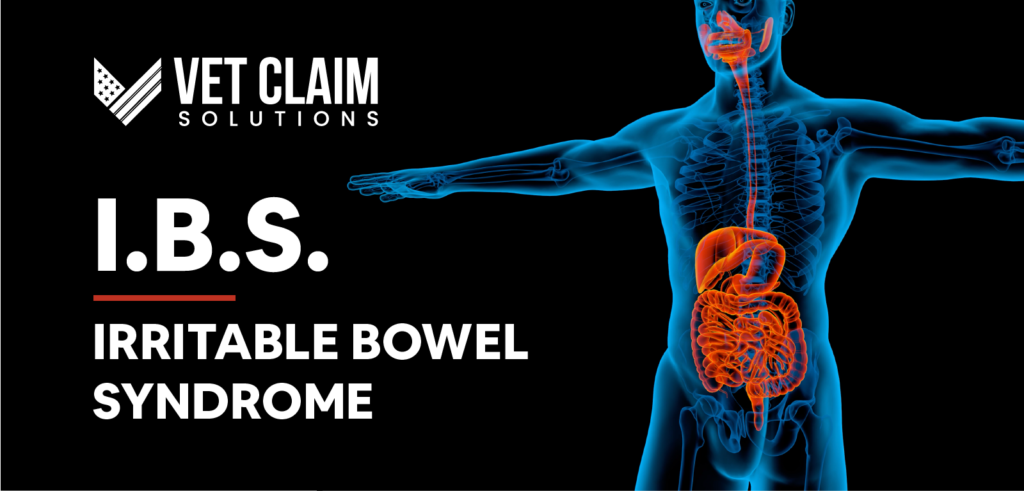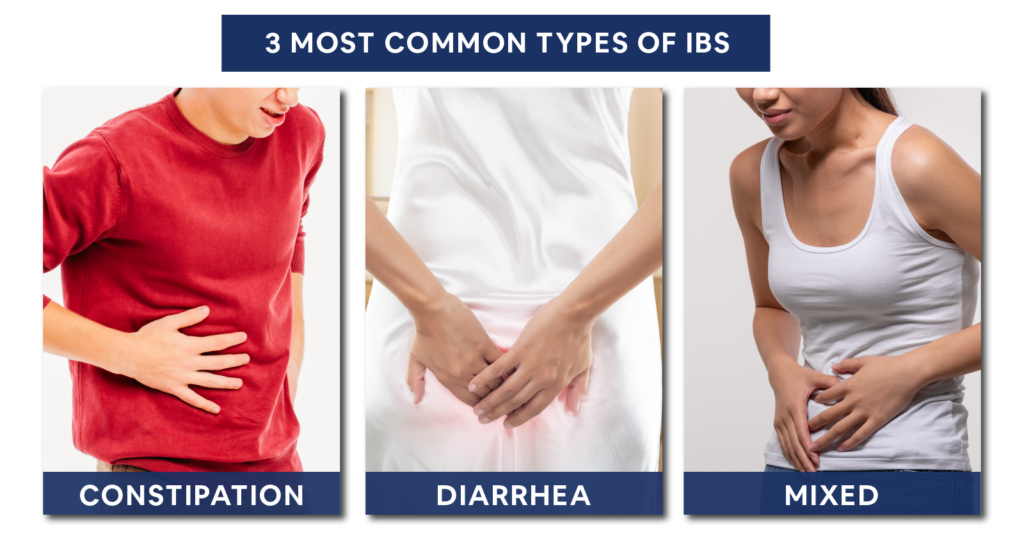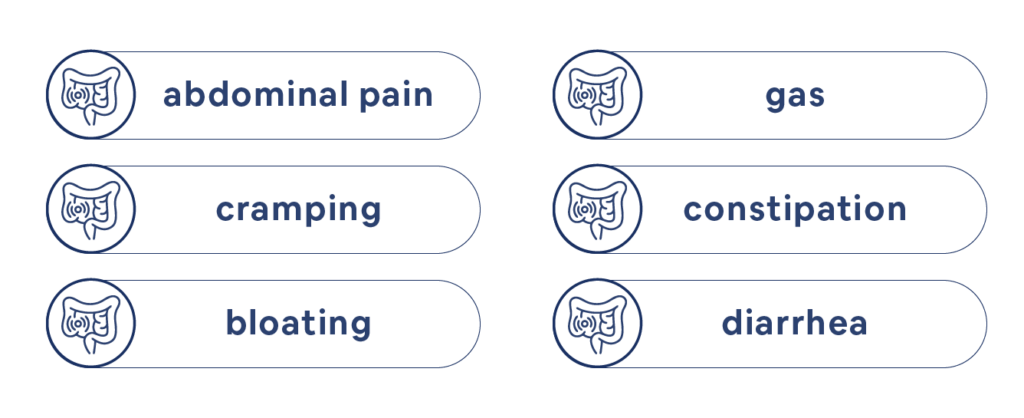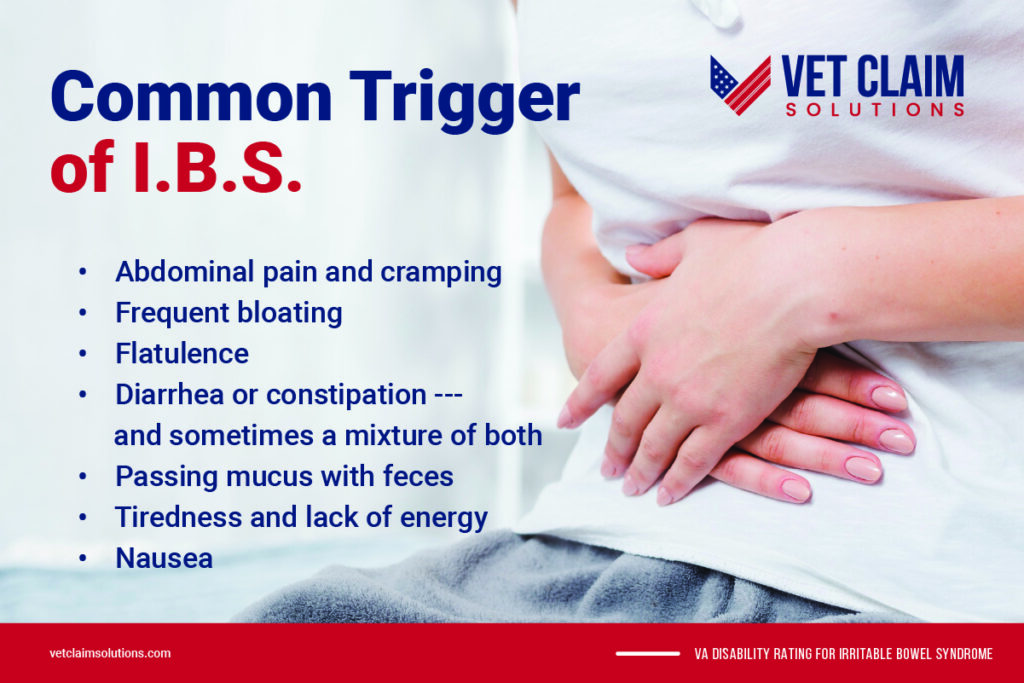
Irritable Bowel Syndrome (IBS) is a common disorder that affects millions worldwide, causing abdominal pain and changes in bowel habits. While there is no cure for IBS, treatment can help reduce symptoms and improve quality of life. For veterans with IBS, disability benefits may be available through the Department of Veterans Affairs (VA).
This blog post will provide an overview of VA disability ratings for IBS and how to apply for them. We’ll also discuss the eligibility criteria, application process, and what types of evidence are needed to support a claim. Read on to learn more about this important topic.
What is Irritable Bowel Syndrome?
Irritable bowel syndrome (IBS) is a highly variable, chronic disorder affecting the large intestine. Common symptoms of IBS include abdominal pain or discomfort, bloating and distension, constipation and/or diarrhea, flatulence, and mucus in the stool. These symptoms often occur in combination and can be intermittent or persistent.
3 Types of IBS
The most common types of IBS are:

IBS-C (constipation):
Infrequent bowel movements and abdominal pain characterize this type.
IBS-D (diarrhea):
This type is associated with frequent loose stools and cramping.
IBS-M (mixed):
People with this type experience both constipation and diarrhea.
Symptoms of IBS
Symptoms can range from mild to severe and can be affected by stress, diet, hormones, and other factors. The most common symptoms are

Common Triggers of IBS
Certain triggers may aggravate IBS symptoms in disabled veterans, including:

Food Intolerance or Allergies
Food allergies or intolerances rarely cause IBS, but many individuals experience worsening symptoms when they consume certain foods and beverages such as wheat, dairy products, citrus fruits, beans, cabbage, milk, and carbonated drinks.replica watches,replica watches UK,fake watches.
Stress
While stress may not be the root cause of IBS symptoms, it can make them worse or more frequent.
Hormones
Women are twice as likely to experience IBS as men, which may indicate the role of hormones in developing symptoms. Many women report worse symptoms around their menstrual cycles.
Medication Side Effects
Various medications to manage physical or mental disabilities can trigger symptoms or worsen existing ones.
VA Rating Scale for IBS
The Department of Veterans Affairs (VA) recognizes irritable bowel syndrome (IBS) as a disability and compensates veterans diagnosed with the condition. To determine the proper amount of benefits, VA reviews a veteran’s medical records to evaluate the severity and frequency of their symptoms.
VA uses a rating system based on 38 CFR § 4.114, diagnostic code 7319 for Irritable Colon Syndrome, to assign ratings ranging from 0 to 10 to 30 percent depending on the severity of symptoms.

0% rating
The 0 percent rating is assigned if a veteran exhibits mild symptoms such as occasional episodes of abdominal distress or disturbances in bowel function. At this level, no compensation is provided, but veterans may still be eligible for other VA benefits such as health care.

10% rating
A 10 percent rating is given to those with moderate symptoms, including frequent episodes of bowel disturbance with abdominal distress or discomfort. These could include bouts of diarrhea, severe gas, and bloating.

30% rating
The highest rating of 30 percent is awarded to those with severe symptoms such as diarrhea, alternating between diarrhea and constipation, accompanied by more or less constant abdominal distress. To qualify for this rating, veterans must demonstrate that their IBS causes them to constantly be in pain.
Veterans need to provide a detailed account of their IBS symptoms when applying for benefits, as the severity and frequency of symptoms can vary from person to person. The VA rating system is designed to assess the impact of IBS on a veteran’s daily life to determine the proper amount of compensation. Veterans should always report their symptoms accurately to be properly compensated for their disability.
How to Tie Service Connection for IBS?
Service Connection for former POWs and Gulf War veterans:

Establishing a service connection for IBS is relatively straightforward for former POWs and Gulf War veterans, as they have a presumptive service connection. This means that when a former POW held for at least 30 days or a veteran who served in the Southwest Asia Theater of Operations during the Gulf War applies for IBS VA disability benefits, they don’t need to present evidence of a link between their service and IBS.
All that is needed for a successful application is proof of diagnosis of IBS and records showing military service in the Persian Gulf region. This presumptive service connection also extends to other digestive and gastrointestinal disorders, such as nutritional disorders for former POWs or functional gastrointestinal disorders for Gulf War veterans.
However, this presumptive service connection does not apply to structural gastrointestinal disorders such as GERD, heartburn, and acid reflux. Furthermore, the presumptive service connection means that veterans can qualify for IBS VA disability benefits regardless of when the condition manifested itself, even if it was years after the veteran’s discharge.
Service Connection for Other Veterans

IBS Started During Service
If IBS was first diagnosed or manifested during a veteran’s service, the VA would consider it service-connected. The veteran can receive compensation and other benefits, such as medical care, through the VA system. To prove service connection, the veteran must provide evidence of their gastrointestinal issues during military service and medical records that show the condition was misdiagnosed at the time. Additionally, a veteran must obtain a letter from their doctor stating that the gastrointestinal problems were a manifestation of IBS, regardless of how it was diagnosed then.
For example, suppose a veteran had gastrointestinal problems during their time in the military. It was misdiagnosed as a food-borne illness but later correctly diagnosed with IBS at a C&P exam. In that case, they may be eligible for a service-connected disability. In this case, the doctor can compare the veteran’s symptoms from the time of military service to the present, thus proving that they have had irritable bowel syndrome all along. The veteran can then submit this evidence to the VA for compensation and benefits.
IBS Made Worse by Service
IBS symptoms can be significantly worsened by service in the military, as the unique and often stressful environment may lead to flare-ups of IBS symptoms. Military personnel diagnosed with IBS before joining the military often find that their symptoms become more severe during service, or they may even develop IBS-like symptoms while in the military. Prolonged stress and physical activity can often exacerbate the symptoms of IBS, making it more difficult to manage.
When pursuing a VA disability claim for IBS, it is important to provide evidence that the condition was caused or worsened by service in the military. This often requires detailed documentation that demonstrates how your symptoms have increased as a result of military service and can include statements from attended medical and healthcare providers as well as physical evidence of increased symptoms.
IBS Diagnosed After Service
If your IBS was not diagnosed until after you left the military, it is still possible to obtain VA benefits. To do so, you must be able to show in your VA claim that your IBS-related disability began to manifest during your military service but was either misdiagnosed or failed to be correctly diagnosed at that time. This can often be difficult, as IBS symptoms can present in various ways and mimic other conditions. However, if you have medical records showing signs of IBS before your military discharge, these can be used to support your claim.
Pursuing IBS as a Secondary Condition

Pursuing IBS secondary to other conditions is possible under the law for veterans with IBS, especially those diagnosed long after leaving the military. A wide range of primary conditions could be linked to IBS, such as PTSD, depression, anxiety, orthopedic injuries due to the use of NSAIDs medication, etc. Evidence of causation must be presented to demonstrate a secondary service connection for IBS.
This evidence must show that the secondary disability is “proximately due to” or “the result of” another service-connected disability. Three evidentiary elements must be satisfied for IBS secondary to PTSD:
1) A medical diagnosis of IBS in VA medical records or private records (unless you already have a diagnosis of IBS in your service treatment records).
2) Evidence of a service-connected primary disability (such as PTSD, depression, anxiety, migraines, GERD).
3) Medical nexus evidence establishing a connection between the service-connected disability (PTSD) and the current disability (IBS).
If all of these elements are satisfied, veterans have a strong case for IBS secondary to another service-connected disability. It is important to note that a Nexus Letter from an expert medical opinion is essential to establish the connection between IBS and another service-connected disability. This letter allows veterans to pursue a secondary service connection for their condition.
The C&P Exam for IBS

The C&P Exam for IBS is designed to evaluate your physical and mental condition related to the illness. During the exam, the examiner will ask about medical history and symptoms. It is important to provide an accurate assessment of your condition, as this can affect the outcome of the exam.
This includes providing an honest description of your symptoms, how often they occur, and their severity. It is also important to discuss how your IBS symptoms impact your daily life, such as work, social activities, and leisure pursuits.
By providing a comprehensive account of your condition to the examiner, you can help ensure that your C&P Exam for IBS is properly evaluated and the appropriate outcome is achieved. Additionally, review the intestinal conditions DBQ form before your C&P exam, as it will provide a clear understanding of the questions that may be asked during the exam.
This can help prepare you for the exam and ensure that your IBS symptoms are accurately reported. By doing this, you can help to ensure that the C&P Exam for IBS is properly evaluated and a fair outcome is achieved.
The examiner will consider your information when making their assessment, so it is important to provide a clear and concise description of your condition. With this in mind, you should be prepared to discuss your IBS symptoms and their impact on your daily life in detail.
This information will help the examiner evaluate your condition and understand the extent of your IBS symptoms. With this in mind, you can help to ensure that the C&P Exam for IBS is properly evaluated and a fair outcome is achieved.
Do You Have Questions about Filing a Claim for IBS?

If you have any questions about filing a claim for IBS or need help obtaining your C&P Exam results, Vet Claim Solutions is here to help. Our experienced team of veterans benefits specialists can provide detailed guidance on different aspects of filing a claim for IBS, from obtaining the necessary medical records to filing a claim with the Department of Veterans Affairs. Contact us today for more information and to get started on your claim.
We have the experience and knowledge to help you navigate the VA claims process, so don’t wait to contact us.


